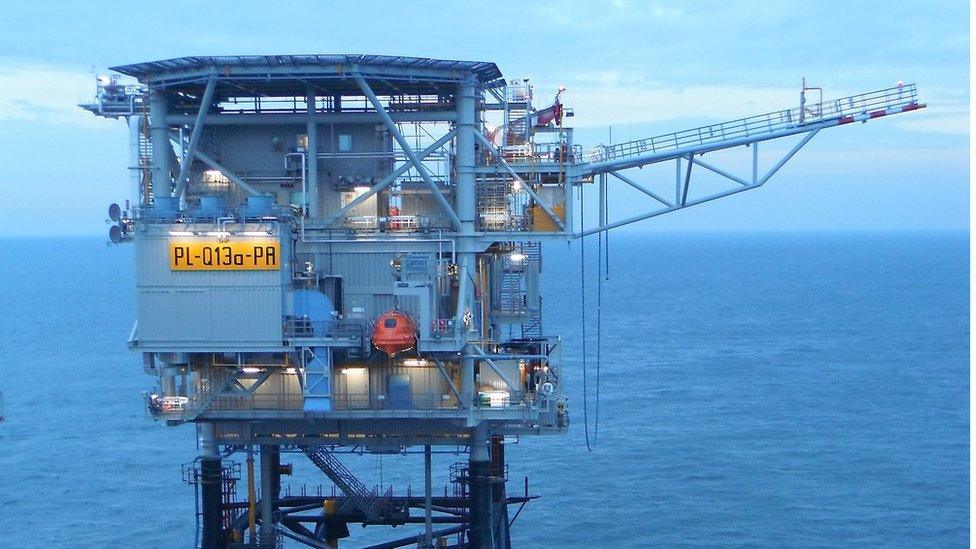Can hydrogen fuel help drive towards green future?
- Published

"There's no doubting that diesel is messy," says Dougie Choppen, who has been working on the railway for about 45 years.
He is now part of a small but dedicated team at a site in Bo'ness halfway through building Scotland's first train powered by a hydrogen fuel cell, which will emit nothing more than steam and condensed water.
"You think back to the damage that we've probably caused to the planet, the fumes that came off main line locomotives filling the shed full of fumes, filling the railway station full of fumes at times. Yeah, it does make you think," he said.
The diesel "fumes" Dougie is referring to - shorthand for greenhouse gases - are not only bad for human health but are also a major contributor to the climate crisis.
Big businesses are using climate change to make a case for hydrogen.
Those with a stake in the industry want the UK government to nail down a "bold" hydrogen strategy, and soon, which is said to be coming this year.
A new survey by business campaign group Hydrogen Strategy Now says without it we'll miss out on investment and job creation.
But it's not a simple story and a critical eye from environmental groups is closely watching how this plays out.
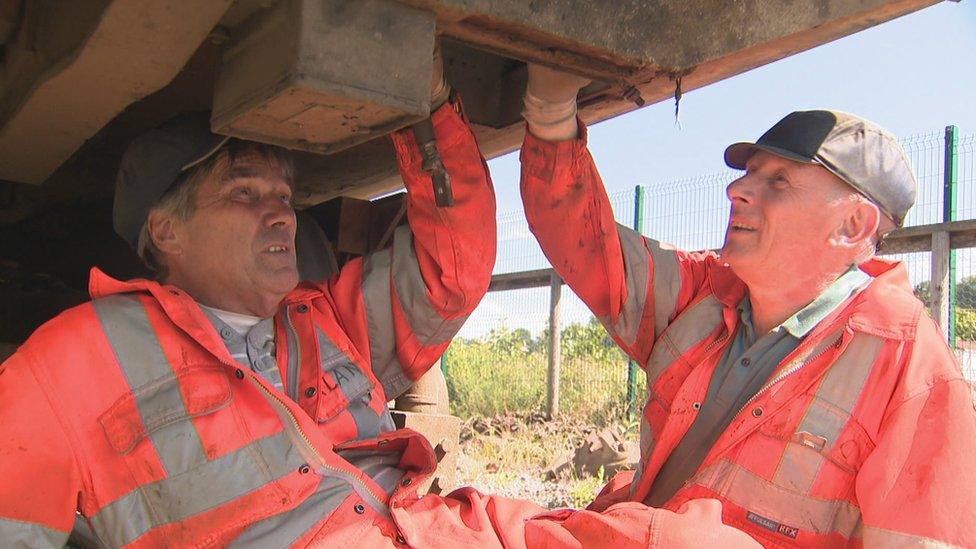
A small team is working on building the hydrogen train
The train being built in Bo'ness will be powered by "green" hydrogen, which is made using renewable energy to power the electrolysis of water.
It uses a lot of energy and is pricey - and added to that, when the hydrogen is on board the train, it will then be converted (via a fuel cell) back into electricity to power the train.
Electricity - to hydrogen - back to electricity. Which begs the question: isn't this really energy inefficient?
"Absolutely." A surprising answer from the CEO of Arcola Energy, the company in charge of the train build.
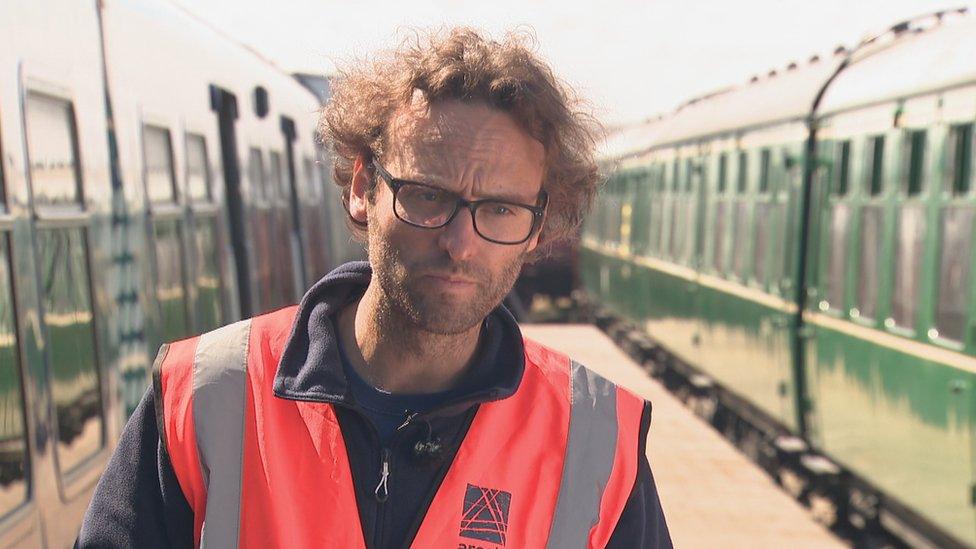
Arcola Energy CEO Ben Todd doesn't shy away from the criticisms of hydrogen
But Ben Todd doesn't shy away from the criticisms of hydrogen, he believes it holds a place in a bigger picture.
"If you want the most efficient process just go from direct electricity, overhead cables, into the motor, that's the most efficient way to drive a train," he says.
"So if you've got that option, do it.
"The next most efficient approach would be to take that electricity put it into a battery, use the battery to drive the motor.
"The hydrogen fuel cell makes sense where those two options don't work and you're stuck with diesel."
For him, decarbonisation is about using all the tools you have and hydrogen playing a role in the transport, industry and heating tasks that batteries are struggling to fulfil.
"So I say use the right technology everywhere," Mr Todd says.
"There are plenty of places where it makes really good sense to do fuel cells, the business case works, the technical case works, so it's horses for courses."
He, like other enthusiasts, reckon the price tag on hydrogen will go down if business is scaled up, which is why he's pushing for a UK strategy to build market confidence.
Low carbon hydrogen
The Scottish government believes Scotland has many of the key natural resources and components necessary to grow a strong hydrogen economy and, as such, is investing £100m to drive it forward.
The UK government too says "low carbon hydrogen" will be essential for achieving net zero targets - that is balancing the amount of greenhouse gas produced and the amount removed from the atmosphere.
But notice the term "low carbon hydrogen".
"First of all I think hydrogen is essential for the energy transition for having a chance to get to net zero, for keeping the climate in check," says Erik Dalhuijsen, who worked in the oil industry as an engineer for about 30 years before he got involved in climate change activism six years ago.
"Now the problem is where does the hydrogen come from?," he says.
"Because hydrogen in itself is an energy carrier so you need to make it from something. And green hydrogen has the potential for being an important part of the energy system of the future.
"Whereas the "grey" and "blue" hydrogen - one of them is made from natural gas, the other one is made from natural gas but using carbon capture - cannot achieve net zero.
"If the hydrogen strategy doesn't specify "green" hydrogen then it's dirty hydrogen and you cannot use that in the long term to get to net zero."
Friends of the Earth Scotland, fear the push for hydrogen is fossil fuels through the back door.
Climate campaigner Jess Cowell says: "Green hydrogen risks diverting currently limited renewable energy supplies away from where it is needed in powering transport and keeping homes warm.
"Fossil Hydrogen should not be developed or relied upon to cut emissions."
'Thinking of grandkids' future'
Back in Bo'ness, Dougie, Alan and Steve reminisce about driving diesels as they work on the hydrogen train.
In the 70s it didn't cross their minds what it was doing to the environment.
But this project has exposed them to the important role innovation will play in tackling climate change.
"I've got a couple of young grandkids now, and you're thinking of their future." Steve McCredie tells me.
"I feel really pleased and delighted that I'm part of that."
- Published1 July 2020
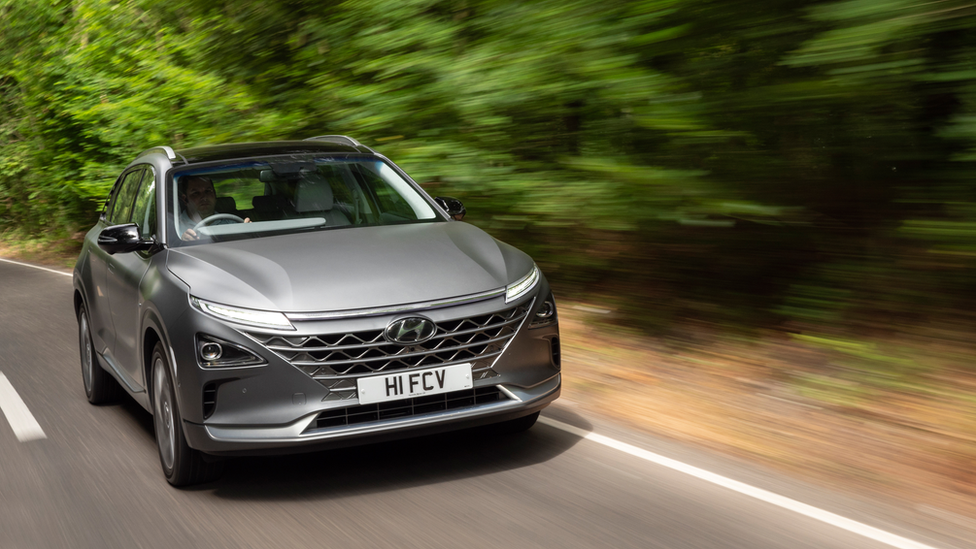
- Published8 December 2020
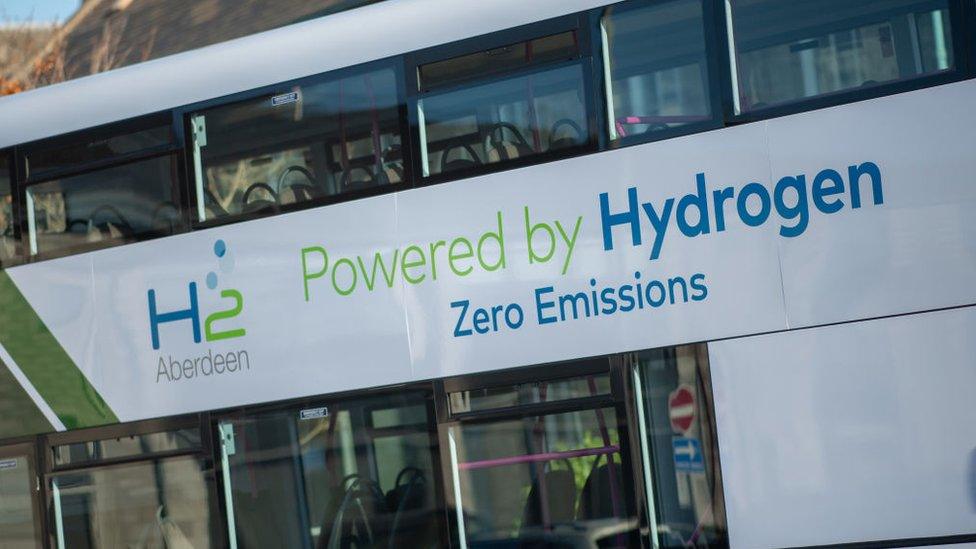
- Published12 February 2021
